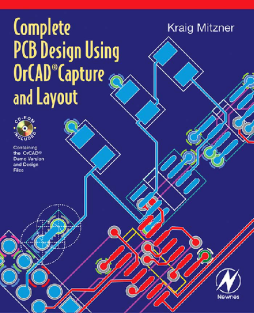
Additional Information
Book Details
Abstract
Complete PCB Design Using OrCad Capture and Layout provides instruction on how to use the OrCAD design suite to design and manufacture printed circuit boards. The book is written for both students and practicing engineers who need a quick tutorial on how to use the software and who need in-depth knowledge of the capabilities and limitations of the software package. There are two goals the book aims to reach:
The primary goal is to show the reader how to design a PCB using OrCAD Capture and OrCAD Layout. Capture is used to build the schematic diagram of the circuit, and Layout is used to design the circuit board so that it can be manufactured.
The secondary goal is to show the reader how to add PSpice simulation capabilities to the design, and how to develop custom schematic parts, footprints and PSpice models. Often times separate designs are produced for documentation, simulation and board fabrication. This book shows how to perform all three functions from the same schematic design. This approach saves time and money and ensures continuity between the design and the manufactured product.
- Information is presented in the exact order a circuit and PCB are designed
- Straightforward, realistic examples present the how and why the designs work, providing a comprehensive toolset for understanding the OrCAD software
- Introduction to the IPC, JEDEC, and IEEE standards relating to PCB design
- Full-color interior and extensive illustrations allow readers to learn features of the product in the most realistic manner possible
“I've found this book to be very helpful and exactly what I've been looking for. Kraig Mitzner has done a wonderful job of covering the full spectrum of printed circuit board fabrication. The content spans not only the OrCAD Layout software, but the physical process of PCB fabrication and advanced topics such as RF issues.
—Jeff Will, Valparaiso University
